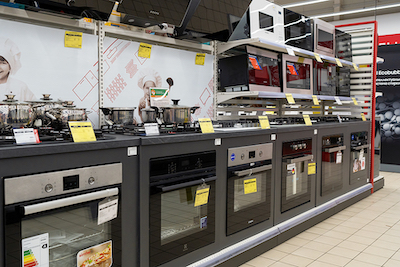The age-old debate between using a dishwasher and hand washing dishes has been a contentious topic in households for years. While some argue that dishwashers are more efficient and eco-friendly, others claim that hand washing can yield better results and is more cost-effective. In this article, we will analyze the various factors that contribute to the efficiency of dishwashing and hand washing to determine which method is ultimately better for you and the environment.
Environmental Impact
- Water usage
When it comes to water usage, modern dishwashers have the upper hand. According to the Environmental Protection Agency (EPA), a standard dishwasher uses around 3-4 gallons of water per load, while hand washing dishes can consume up to 27 gallons per load. The water-saving features found in Energy Star-rated dishwashers can further reduce water usage to 3 gallons per load. Therefore, using a dishwasher can save up to 24 gallons of water per load, translating to significant water savings over time.
- Energy consumption
Energy consumption is another crucial factor to consider when comparing dishwashing and hand washing. Dishwashers use electricity to heat water and power their mechanical systems, while hand washing requires manual effort and energy to heat water. An Energy Star-rated dishwasher consumes about 1.5 kWh per load, whereas hand washing dishes with hot water from an electric water heater can consume 2.5 kWh per load. As a result, using a dishwasher can save around 1 kWh of electricity per load.
- Detergents and chemicals
The use of detergents and chemicals also plays a role in the environmental impact of dishwashing and hand washing. Dishwashers generally use less detergent than hand washing, as they are specifically designed to work with a smaller amount of concentrated detergent. Additionally, many dishwasher detergents are phosphate-free and biodegradable, reducing the risk of water pollution. In contrast, hand washing often requires larger amounts of detergent, which can contribute to water pollution and harm aquatic life if not properly treated.
Cleanliness and Hygiene
- Temperature
One of the key factors that determine the cleanliness of dishes is the temperature of the water used for washing. Dishwashers are designed to heat water to a temperature of around 140-145°F, which is hot enough to kill most bacteria and germs. Hand washing, on the other hand, typically uses water heated to 100-110°F, which may not be sufficient to eliminate all harmful bacteria. Thus, using a dishwasher can result in more hygienic dishes.
- Consistency
Dishwashers provide a consistent and thorough cleaning experience, using mechanical sprayers and jets to reach every nook and cranny of your dishes. Hand washing, however, depends on the individual’s technique and effort, which can vary greatly and result in some dishes not being cleaned as thoroughly as others. Dishwashers offer a more consistent and reliable method of cleaning your dishes.
Convenience and Time
- Time management
Dishwashers offer a significant advantage in terms of time management, as they allow you to load the dishes and let the machine do the work while you attend to other tasks. Hand washing requires dedicated time and effort to clean each dish individually. A full load of dishes can take anywhere from 30 minutes to an hour to hand wash, while a dishwasher can complete the same task in a similar timeframe without your direct involvement.
- Convenience
Using a dishwasher is undeniably more convenient than hand washing. Once loaded, a dishwasher requires minimal input, allowing you to focus on other tasks or relax while your dishes are being cleaned. Hand washing, on the other hand, is a manual and time-consuming process that can be tiring after a long day. Moreover, dishwashers can help reduce clutter in your kitchen, as dirty dishes can be loaded directly into the machine instead of piling up in the sink.
Cost
- Initial investment
The initial cost of purchasing a dishwasher can be a significant investment, with prices ranging from a few hundred to over a thousand dollars. However, considering the long-term savings in water and energy, as well as the added convenience, a dishwasher can be a worthwhile investment for many households. Hand washing does not require any upfront cost, making it the more affordable option for those on a tight budget or with limited kitchen space.
- Maintenance and repairs
Like any appliance, dishwashers may require occasional maintenance and repairs, which can add to their overall cost. Hand washing dishes does not entail any additional costs other than detergent, making it the more cost-effective option in terms of maintenance. However, the time and effort spent on hand washing should also be factored into the overall cost.
Conclusion
When comparing dishwashing and hand washing, it is evident that dishwashers offer several advantages in terms of environmental impact, cleanliness, and convenience. Modern dishwashers are designed to be water and energy-efficient, contributing to a smaller ecological footprint. Additionally, they provide a more consistent and hygienic cleaning experience, ensuring that your dishes are free of bacteria and germs.
While hand washing may be the more affordable option initially and require less maintenance, the long-term savings in water and energy from using a dishwasher should not be overlooked. Ultimately, the choice between using a dishwasher and hand washing dishes depends on your personal preferences, budget, and priorities. If you value convenience, time-saving, and environmental benefits, a dishwasher may be the right choice for you. However, if you are on a tight budget or have limited kitchen space, hand washing can still be an effective method for cleaning your dishes.













